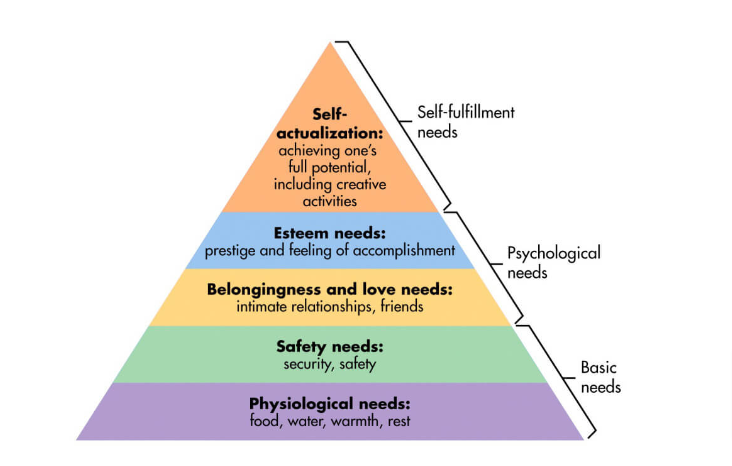Foundations of Conscious Relationships
We know that in relationships, much like with money, what you are magnifies and becomes more prominent. The way we typically approach relationships lacks consciousness; most individuals enter a relationship with the expectation that it will manage itself effortlessly, while in reality, successful relationships require a foundation built on a deep understanding of feminine and masculine energies and how they harmonize.
Conscious relationships differ from others in that they overflow into every aspect of the partners’ lives, towards healing, growth, and evolution.
1- Types of Relationships:
Before delving into the nature of conscious relationships, let’s take a look at the existing types of relationships:
1.1 Codependent Relationship:
This type of relationship is characterized by excessive reliance on each other to achieve emotional comfort or a sense of security. Often, one party in the relationship exerts control over the other, which can be negative and lead to prioritizing the other’s personal needs over one’s own.

It’s compared to a tower of solitaire card decks, each dependent on the other, and in case of any fault, the tower collapses.
2.1 Independent Relationship:
In this type of relationship, each party possesses the ability to rely on themselves and fulfill their personal needs independently without needing the other. Each party respects the other’s boundaries and strives to maintain a balance between reliance on the other and personal independence.

The concept of independence can take various forms, such as enjoying time alone, pursuing new hobbies, or setting healthy boundaries.
3.1 Interdependent Relationship:
This type of relationship is characterized by mutual interaction and influence, where each party relies on themselves independently to achieve success and personal satisfaction while also contributing support and love. Both parties in this relationship seek to enhance healthy communication and productive collaboration without compromising personal boundaries or overly relying on the partner.

Likened to dancers, each dancing skillfully, but they chose to dance together and perform a beautiful dance.
2- Difference Between Regular and Conscious Relationships:
1.2 Regular Relationship (Codependent or Independent):
People enter regular relationships without awareness, not realizing their purpose. Most reasons behind these relationships stem from societal awareness: to avoid loneliness, to progress in age, etc. They operate on a system of fear and ego, expecting the other party to provide constant happiness.
Feelings of inadequacy are common, with both parties believing they are incomplete and awaiting someone to fill their void.
2.2 Conscious Relationship (Interdependent):
In a conscious relationship, each party focuses on themselves and accepts the other without resistance or attempts to change them. In conscious relationships, there is integration based on self-sufficiency rather than filling a void, making self-awareness a crucial foundation. These relationships reveal both the unseen dark side and the unacknowledged unique qualities within oneself.
In conscious relationships, we are responsible for our own happiness and well-being while also providing support to the other party, aiding in their growth and development. They do not depend on both parties being at their best; rather, they center on accepting each other’s humanity and showing genuine compassion. It’s important to note that here empathy is emphasized, not just sympathy.

In conscious relationships, as in the figure above, we are responsible for meeting our primary needs, but the presence of a partner will make things easier and will require understanding in achieving this.

3- Characteristics of Conscious Relationships:
These relationships are intentionally created with clarity and choice regarding how you want to feel in your relationship, how you love, and wish to be loved, as well as your boundaries and non-negotiables. They are structured deliberately to support these needs and desires.
3.1 Self-Awareness:
Conscious relationships begin with self-awareness, where each party strives to better understand themselves, including their needs, feelings, thoughts, and behaviors. Self-awareness is essential for achieving internal balance and emotional stability within the relationship.
3.2 Other Awareness:
Understanding the needs and feelings of the other party is crucial for building genuine empathy and interest. By focusing on the partner’s needs and actively listening, a deep bond reflecting mutual respect and appreciation can be formed.
3.3 Effective Communication:
Effective communication is a fundamental pillar of conscious relationships, allowing partners to open their hearts and express their feelings and needs clearly and sincerely. Through honest and open communication, challenges can be overcome, and problems resolved effectively, enhancing deep communication and mutual understanding.
3.4 Mutual Respect:
Mutual respect is essential for building a healthy and sustainable relationship, where each party values the other and respects their thoughts and feelings. Through mutual respect, trust and affection are strengthened, fostering communication and mutual support.
3.5 Shared Responsibility:
Conscious relationships require shared responsibility, where each partner takes responsibility for their feelings and behavior and participates in continuously building and developing the relationship. Through collaborative efforts and dedication to building trust and achieving shared goals, relationship bonds are strengthened, and personal and emotional growth is achieved for each partner.
Conscious relationships are characterized by mutual understanding and appreciation, serving as the foundation for happiness and contentment in personal and emotional life. They are experiences that reflect maturity and personal growth, enhancing deep and sustainable connections between partners.






